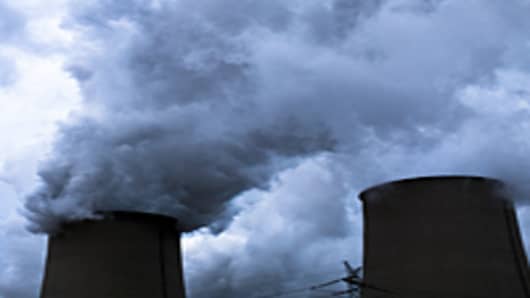European gas suppliers could see a boost from Germany's decision to phase out nuclear energy, with other countries set to follow Berlin's lead, Per Lekander, head of utilities research at UBS, told CNBC Wednesday.
“I really think it’s the full gas value chain (that will benefit) so obviously we think of course of companies like Gazprom , but I think there are issues relating to it. Statoil is another company which is going to benefit in Europe,” Lekander said.
He added that energy suppliers, such as German firm E.On , which has threatened to sue the German government over its decision to phase out nuclear over the next decade, will rectify losses they have incurred due to falling gas prices.
“If you look at E.On, Gas Naturale , GDF Suez , they are losing quite significant amounts of money right now on the losses they are making on the fact that gas prices went down, and they are going to benefit (from increased demand),” he explained.
“If you look at E.On for instance, we estimate that they will lose over 1 billion euros ($1.46 billion) on oversupply in gas markets, and that’s clearly going to go away,” he added.
Europe Turning its Back on Nuclear?
Lekander said he believed other European countries, including France which relies heavily on nuclear energy, could follow Germany and opt to close some of their nuclear plants.
“Switzerland actually has some of the oldest plants in the world, several plants which started operating in the sixties. Also in France, there are particularly two units which I think are at risk, they are named Fessenheim and as you hear in the name, they are really on the Swiss-German border and they are the oldest ones in the country. So even if France is pro-nuclear, they cannot totally dismiss this situation and this becomes a bit of a sacrifice in order to save the rest,” he said.
He added that Germany had some of the safest plants, in contrast to the UK where a number of Europe’s oldest nuclear power plants were in use.
“If you had looked on it from a pure safety perspective, I would argue that Germany’s plants should not be the ones which are closed, Germany has the second youngest fleet in Europe. Obviously the risk of earthquakes and tsunamis are pretty lowand then you have ‘Made in Germany’, these plants were probably better engineered than many others and I would say that outside of Russia, the worst nuclear plants in Europe are in the UK, those are the only ones which are graphite moderated, so the same design as was in Chernobyl,” he explained.
However, Lekander said politics would dictate which plants were closed and that Britain did not have the same options as continental Europe.
“I think the issues here are however more political, so any plant which is close to a border is at risk, then politicians still needs to take some simplified decisions so I think age is important and then third is there any chance of closing them down, like if you look at Germany, they were really oversupplied and they are well connected to other countries so they can import power,” he said.
“I estimate that over half the closed capacity in Germany is actually replaced by France right now and if you go to the UK, they really have no option, they must continue with these plants,” he added.




